Continuing the conversation about teen dating violence and abuse
National Teen Dating Violence Awareness and Prevention Month aims to bring awareness, education and empowerment
McCallum students form a heart in honor of National Teen Dating Violence Awareness and Prevention Month, symbolizing healthy relationships and strong support for survivors.
President Biden has declared February “National Teen Dating Violence Awareness and Prevention Month,” calling for teens to educate themselves about healthy relationships and ways to prevent and respond to dating violence. McCallum hopes to keep up the momentum that began last semester, when students organized a walkout to bring attention to the school’s response to sexual assault allegations. With the creation of McCallum Against Sexual Abuse, the McCallum community is taking steps to engage in meaningful conversations about healthy relationships and how to navigate sexual assault and trauma.
In his proclamation, Biden defined teen dating violence as something that occurs both in-person and online and in many forms, including physical or sexual assault, controlling behavior, emotional abuse, harassment and exploitation. It can affect anyone, regardless of race, gender, sexual orientation or economic group. Dating violence can happen anywhere, both in public and in private, at school, work and home.
Teen dating violence can greatly affect young survivors, resulting in struggles including depression, substance abuse, risk of suicide, eating disorders, poor academic performance and even unintended pregnancy. According to the National Coalition Against Domestic Violence, 20.9% of female high school students and 13.4% of male high school students have been physically or sexually abused by a dating partner. Even more have been psychologically or emotionally abused. Two-thirds of teenage dating abuse victims never tell anyone.
“During National Teen Dating Violence Awareness and Prevention Month, we recommit ourselves to ending this scourge of our society and providing our young people every chance to live the fulfilling and productive lives they deserve,” Biden said.
On Nov. 15, over 250 McCallum students walked out of their classes, accepting an unexcused absence and ready to engage in a passionate march around the school. The walkout featured homemade posters displaying messages such as “Our halls should be safe” and “I can’t believe we have to do this,” and empowering speeches given by numerous student victims of sexual abuse who were finally given a platform to share their stories. The main objectives of the walkout were to show all students, victims of sexual assault and allies, that they had a strong support base in the student body and that their stories mattered and were heard, as well as to stand together in protest of the way the administration handled previous sexual assault cases.
In addition, nearly 100 students “walked in” to the library, choosing to hear from the administration, learning more about how sexual assault is treated in schools and discussing the next step for the school. Followed by a parent meeting, Griffith described the walk-in as a difficult meeting; she introduced MASA, told the student body about the administration’s goals related to sexual assault education and prevention and listened to students’ stories.

Griffith’s goal for McCallum is that all students feel empowered, safe and informed.
“Awareness means ‘OK, now we know about it,’” Griffith said. “We’re trying to increase education. We would like to prevent these things from happening, whether or not they’re on or off campus. We want our students to be safe and be able to talk about their feelings and what it is that they want out of a relationship. Knowing and acknowledging when you are in a healthy relationship versus one that’s not healthy and not respectful is very important for our students. If our students aren’t getting that knowledge from their families, in my opinion, it’s important that we step in and fill in that gap.”
According to junior Sofia Dorsett, co-leader of MASA, the walkout worked. Support was strong for students who shared their stories and by raising the issue to Griffith who accompanied them in the formation of MASA, the student-led group had the opportunity to work with the administration to create real change. Empowered by the walkout, the first MASA meeting had over 70 students in attendance.
“Our main goals were to educate people and create a safe space,” Dorsett said. “We’ve talked to Ms. Griffith a lot about creating a community that we felt was lacking in our school because we kind of saw an outcry from a lot of people, especially on social media, coming out about situations, and we just wanted a better way to explain it. We wanted an outlet for these people to explain themselves and feel more comfortable.”
Griffith believes McCallum is moving in the right direction. McCallum’s administrators all went through sexual assault and harassment training earlier this year and a new process for the handling of sexual assault cases is in place. To ensure a more consistent response to sexual assault cases and improve communication, all cases now go through one administrator instead of five. Griffith is also working on developing a partnership with SAFE, a local organization that aims to “Stop Abuse For Everyone” through programs including “Expect Respect.”
According to the SAFE website, The Expect Respect program operates under SAFE to prevent violence in children’s lives through supporting youth who have been exposed to violence, raising leaders and promoting safe schools and communities.
“We are continuing to work with our students and in our staff to be aware and proactive,” Griffith said. “It’s an ongoing thing. It’s not something that’s just stopping; we really have to keep the conversation going, and I’m really excited to partner with SAFE and provide some much-needed support in this area.”
Hoping to increase student education on sexual assault, MASA has been focused on spreading educational media and raising awareness online and in the hallways. To increase the impact of the lessons on consent and healthy relationships students receive during advisory classes, a common goal of both Dorsett and Griffith, Dorsett aims to feature more presentations made by students. To continue the momentum of last semester, Dorsett and her MASA co-leader junior Clarissa Castro are looking into putting on a schoolwide assembly on the topic of healthy relationships and good communication.
“The main thing is you’re not alone,” Dorsett said. “When victims go through something like that, they feel kind of different from all their peers. I mean, it can create a lot of strain and relationships, and it’s hard to talk about. So finding a space where you can communicate with people who have been in situations like you I think is really helpful for those relationships that get strained, and for the other person to know how to communicate and support them.”
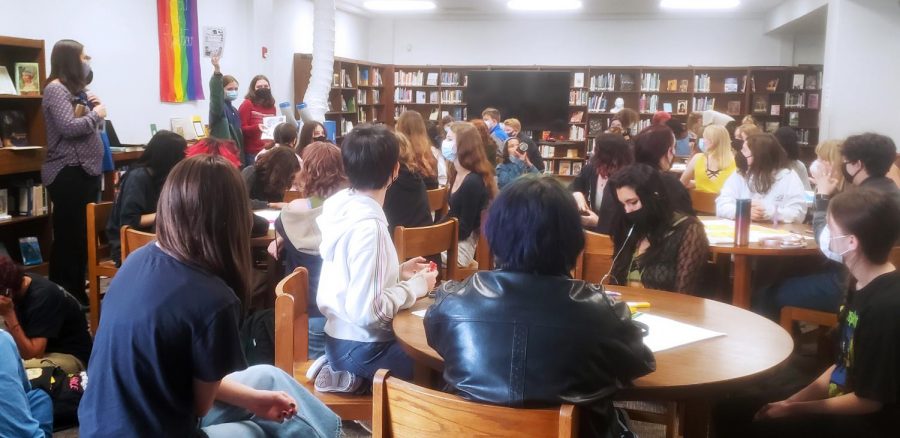
Education, awareness and prevention
Texas Advocacy Project is a resource available to teen victims of dating violence and sexual assault. Texas Advocacy Project seeks to end dating and domestic violence, sexual assault and stalking in Texas through free legal services, access to the justice system and public outreach and education. According to Kaitlyn Eberhardt, Survivor Services and Training Specialist at Texas Advocacy Project, there are two sides to the issue: finding justice after the fact and prevention.
“We like to make sure that everyone is served in a really holistic way,” Eberhardt said. “We know that legal services are a huge part of that but they’re not all of that. Sexual assault is important and when you’re the age you are it really impacts every area of your life. We want to make sure that all of the areas are covered, and you’re getting support everywhere you can.”
Texas Education Code section 37.0831 states that each school district must implement a dating violence curriculum that addresses safety planning, enforcement of protective orders, awareness education for students and parents and more. According to Griffith, McCallum accomplishes this through lessons taught in advisory classes. But Eberhardt said not every school is doing it. She believes that increased discussion in schools of what healthy and unhealthy relationships look like and emphasizing the importance of holding each other accountable would make a big difference. According to Eberhardt, stopping perpetrators of dating violence while they’re young has potential to reduce the number of people affected in the future.
Thatsnotcool.com is a website dedicated to bringing awareness and education to communities to address dating violence, unhealthy relationships and digital abuse by partnering with young people and lifting the voices of young, marginalized people of color. According to their website, signs of an unhealthy relationship include your partner being overly possessive or controlling, putting you down or criticizing you, threatening or scaring you, trying to stop you from seeing or talking to friends and family and threatening to “out” you or tell others about your sexual orientation or gender identity.
“I think that the more we talk about sexual assault and what is counted as assault, the more we will naturally also talk about consent and healthy relationships, which is something that every single young person, every single person of any age really needs to have education and conversations around,” Eberhardt said.
While sexual assault and dating violence can happen to anyone, the Texas Advocacy Project’s website says that 38% of date rape victims are young women between the ages of 14 and 17. While it’s not easy, Eberhardt said high school students, especially boys, have a lot of opportunities to stand up and stop assault when they see it.
“I think another thing is equipping individuals with the tools, conversation starters and the general knowledge and gist of what’s going on,” Eberhardt said. “I think that the best people to support someone like a teen who is involved in dating violence, or if there’s been some sexual assault of any kind, are other teens. It is there. Your support system is the people around you like the other people at school.”
According to Eberhardt, the public has a skewed idea of how to treat dating violence victims, as it can be difficult to think about a human inflicting abuse upon another human. Not only might their memories be questioned, but some victims completely lose control of their memories of a traumatic event for years on end, remembering what happened only in a fragmented sequence. In an effort to keep the body functioning, brains often enter a shock response after traumatic experiences and flood the body with a cocktail of hormones, clouding memories and changing the way people might normally react to a situation. If Eberhardt could create a course that every human was required to take, she would want people to learn exactly how trauma impacts lives.
“The hard thing is every single person has such a personalized experience,” Eberhardt said. “So even if you and I had the exact same experience, we would both have completely different trauma responses to that experience. And then we would walk away with different memories of that, and it would impact our lives in different ways.”
After seeing examples in the media of survivors being blamed, villainized or completely ignored, teens may be afraid to tell their stories and find support. In the same vein, many teen survivors of dating violence and sexual assault aren’t aware of how to receive proper support and have no idea what steps to take to achieve their personal justice. With education and awareness, that can change.
Reporting
To many victims, reporting their stories to the school seems like a natural first step. While a satisfying option for some, most people who work at high schools, including teachers, counselors and administrators, are mandatory reporters, meaning they are required to report cases to their Title IX offices under constantly changing federal and state laws. For other survivors, confidentiality and support are key to achieving personal justice, so they need to find support elsewhere.
“I think on the reporting side, for victims of assault of sexual and domestic violence, trauma is a huge part of it,” Eberhardt said. “There’s also this sense of, ‘I just want this to go away, I’m embarrassed.’ There could also be a memory hole or there could be a religion that stands in the way of someone wanting to report. Oftentimes, sexual assault specifically will happen by an acquaintance or a family member, so they might know the person and don’t want to cause a big stir.”
Help for victims
As a first step after an experience of dating violence or sexual assault, Texas Advocacy Project recommends victims tell a trusted adult and then seek a Sexual Assault Nurse Examination forensic exam. SANE exams are designed to ensure victims are physically safe, evaluate and treat trauma and collect evidence that can be used if the survivor chooses to press charges. After a SANE exam, medical professionals work to improve the medical wellbeing of survivors through issuing medications, referring them to counseling and scheduling follow-up medical appointments when necessary.
“If you had a friend, for instance, that was sexually assaulted, I would definitely suggest and recommend to your friend to go get this done,” Eberhardt said. “Obviously it is kind of invasive; it is something that you don’t want to have to do after you’ve been assaulted. But it is one of those things where if there’s something health-wise that we can prevent later on down the road, we definitely want to take care of you then.”
Later on, dating violence survivors can seek to achieve personal justice through getting in contact with organizations that offer legal representation or a support network like Texas Advocacy Project. Any Texan, regardless of age, can set up a consultation with an attorney at Texas Advocacy Project or use their services at no cost and in complete confidentiality. Survivors can get connected to Texas Advocacy Project’s survivor services to find mental health resources, get information and learn about their rights. According to Eberhardt, dating violence and sexual assault involve a very niche area of the law that is quickly changing and hard to understand.
“Oftentimes, when we think of solving a problem, we think of everything before legal services because our brains just aren’t wired to think that way,” Eberhardt said. “I had a friend a while back when I worked at the State Bar who told me ‘Anytime something feels unfair, there’s probably a legal solution for it.’ I’ve never really forgotten about that. And so really, if you can think about your life, sexual assault and any kind of dating violence would go under that.”
Just like fire exits and tornado drills, planning for the unexpected can be helpful in this context. Safety planning can be done by anyone, but is a key step, according to Eberhardt, for dating violence victims. If a teen chooses to take legal action, Texas Advocacy Project can issue protective orders that are criminally enforced, requiring abusers to give up guns, for example. If a teen doesn’t want to take the full legal route but hopes to receive support from the school, Texas Advocacy Project can help them get a school stay-away agreement. While the school can’t do much in terms of discipline to help students who are assaulted off-campus, school stay-away agreements work like protective orders but go through the school with a record of the case, ensuring, for instance, that people aren’t in the same classes or in the hallways at the same time. Under Texas Law, Texas Advocacy Project can get injunctions that stop digital abuse and potentially even hold cyber bullies’ parents accountable if they don’t stop.
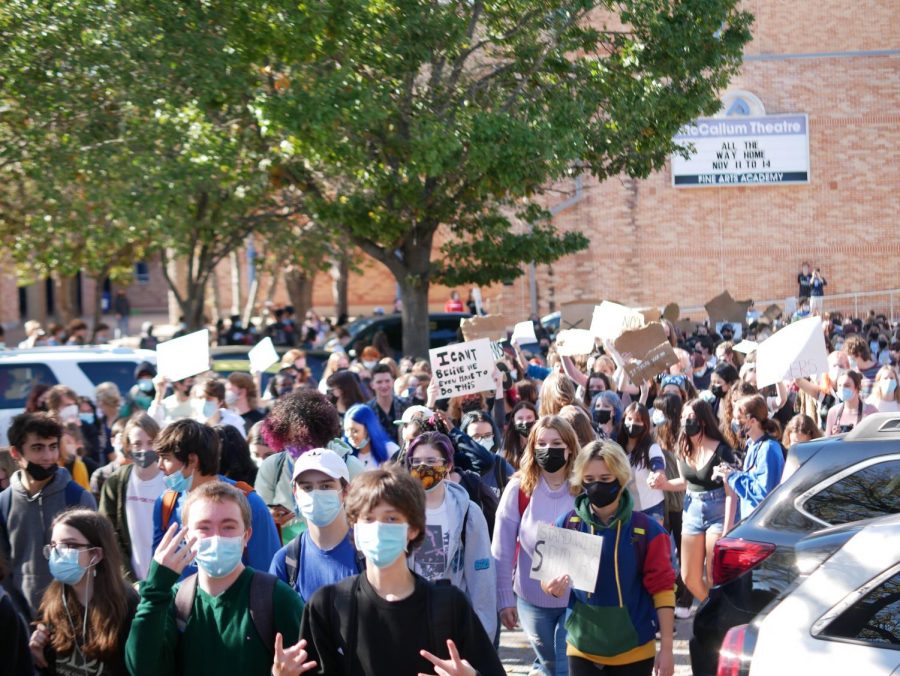
“One of the things that we really care about is that justice looks different for everybody,” Eberhardt said. “For every teen that has been sexually assaulted, their personal justice is going to look different. Maybe one person will want the other person to go to jail, and maybe another person will just never want to see that other person ever, ever again. We also want to make sure all the consultations we do are super personalized, because we’re never saying ‘This is what you should do.’ Our attorneys are just giving the information and then the client is able to decide where they want to go from there.”
According to the National Coalition Against Domestic Violence, 57% of teens know someone who’s been sexually, verbally, or physically abused in a relationship. If you know someone who is being abused or in an unhealthy relationship, Eberhardt recommends opening yourself up as a safe space, engaging in empathetic conversations with the friend while respecting their boundaries and decisions.
When a friend is going through a breakup, Eberhardt recommends helping them create a safety plan to lower the risk of being hurt by their partner and ensure safety and support at school, home and other places. According to thatsnotcool.com, you can help a friend who is being abused by helping them get in contact with medical professionals or trusted adults, reminding them they are not alone or at fault and offering your unconditional friendship and support. Under the same guidelines, teens should refrain from spreading gossip about their friends, rushing or pushing friends to make decisions and confronting the abuser.
According to Eberhardt, Generation Z’s push to raise awareness about sexual assault and demand to make the world a safe space for all people to use their voices will cause real change. Walkouts at schools like McCallum are not only spreading awareness but also getting a message across to adults and bringing a problem to light. Eberhardt believes that the example set through events like walkouts and the media attention they receive will create greater change by attracting outside attention in legislation, support organizations and other groups that can help prevent dating violence and sexual assault. At the same time, increased public awareness of sexual assault may help survivors understand that they are not alone and that their safety and lives are valued.
“Looking at Gen Z, I’m so excited for you guys,” Eberhardt said. “The activism and seeing through all of the smoke to the actual issue and really running against that is so inspiring.”
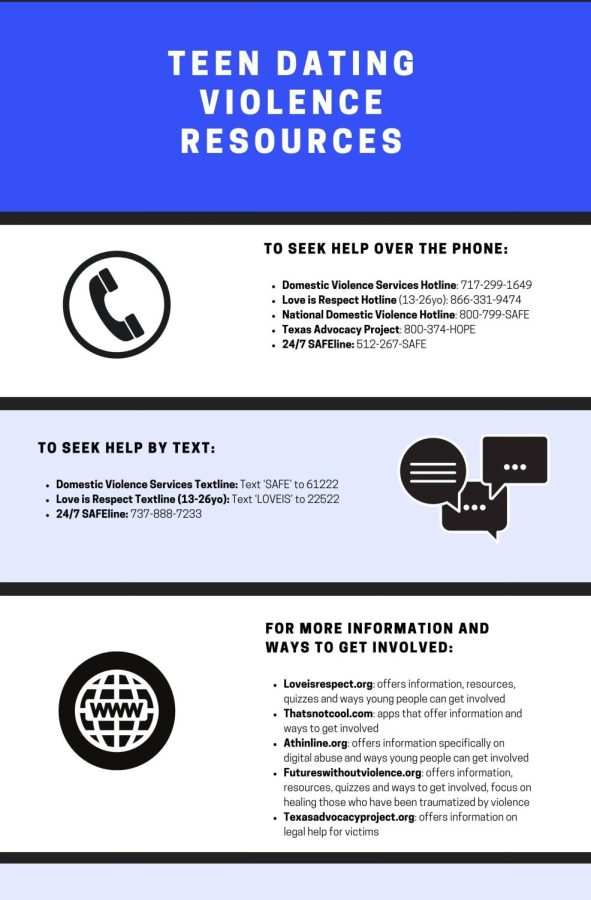



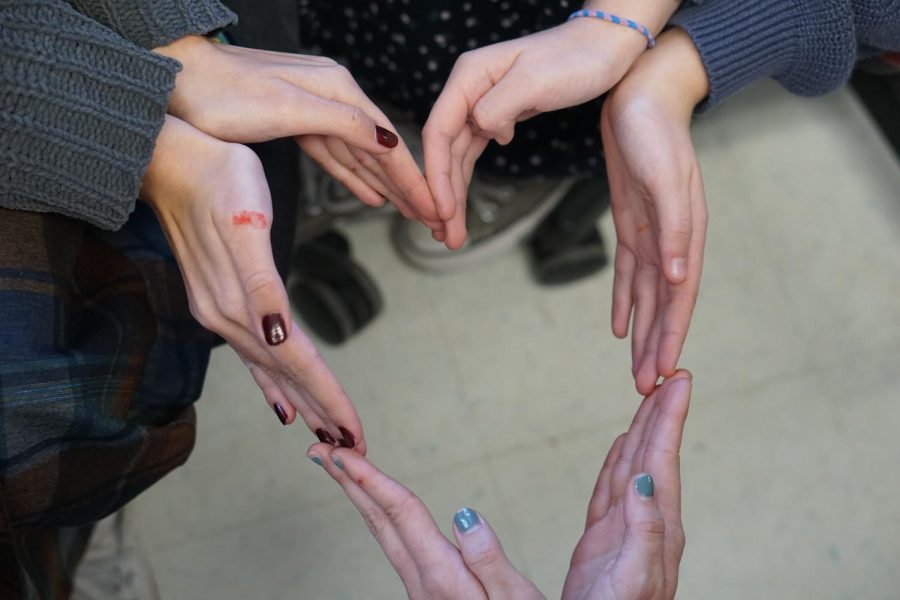
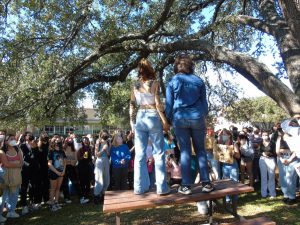
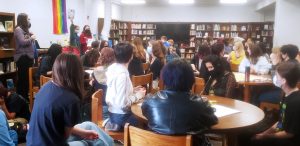

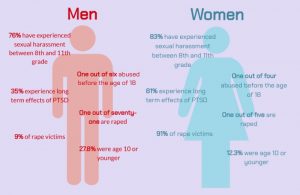



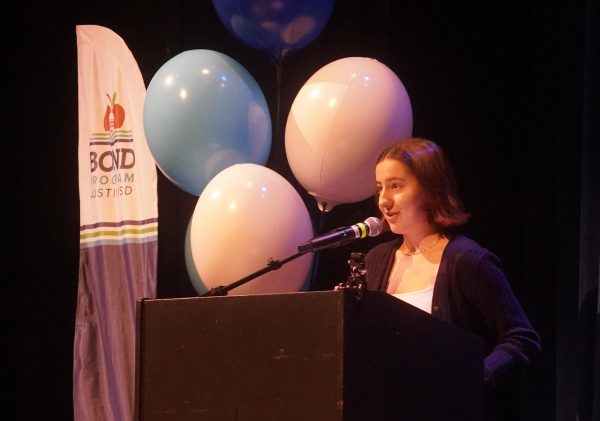
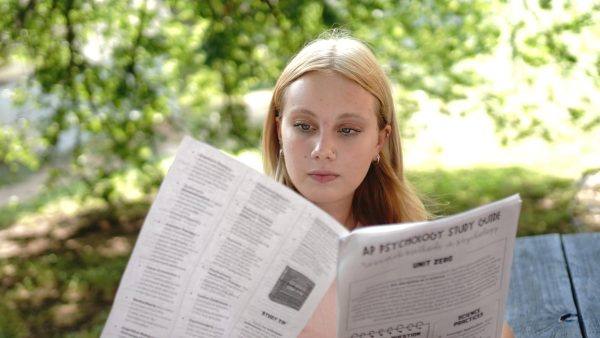
Chloe Lewcock • Feb 23, 2022 at 2:01 pm
I really liked this article, and I thought it was well written and researched! I think it discusses a really important topic well, and brings much needed attention to the education, awareness, and prevention as well as how to get help.
Miranda DiGiovanni • Feb 21, 2022 at 10:15 pm
I think this article is a great way to bring attention to the subject and I like how they discussed ways to continue their ways of Education, awareness, and prevention.
Esme Ostrow • Feb 18, 2022 at 2:52 pm
I really like this article, I think it’s good to bring awareness to something that is more frowned upon than getting help for.